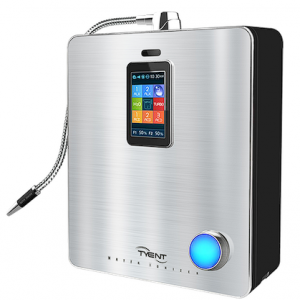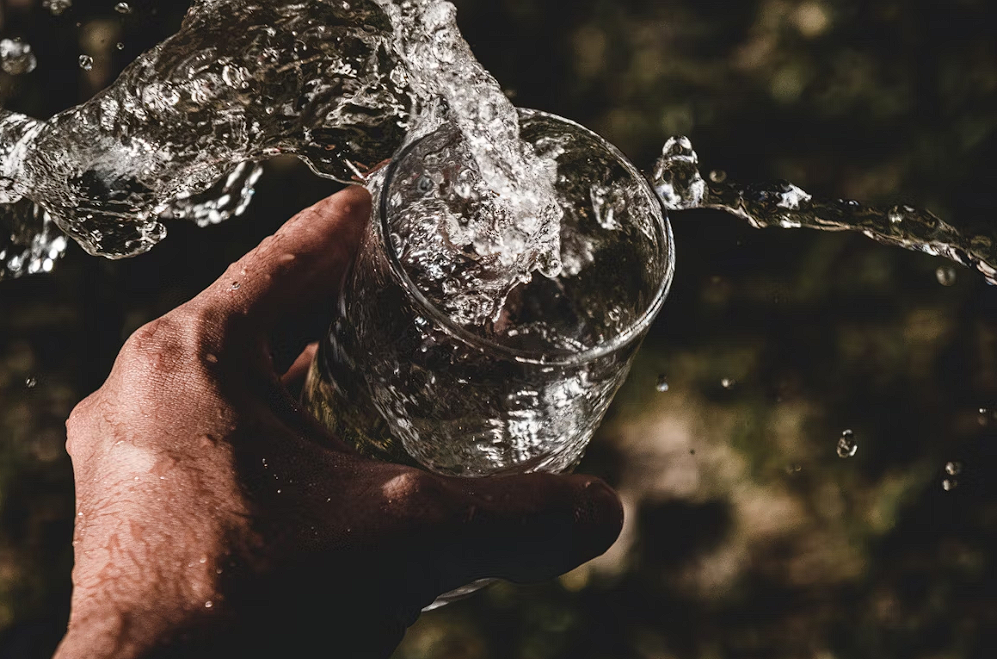In the United States alone, waterborne pathogens cause an estimated 7.15 million illnesses, 118,000 hospitalizations, and 6,630 deaths each year, which leads many people to wonder how they can keep themselves and their families safe. The first step is to know what’s in your drinking water, but can an at-home test kit help?
At-home water test kits can give you an idea of what you’re drinking, but not all test kits work the same. In this article, we’ll talk about the benefits and drawbacks of at-home test kits, how you can get a free report of what’s in your water, and how ionizers, like Tyent’s water ionizers, can help if you discover if you have contaminated water.
What’s an At-Home Water Test?
At-home water tests use a sample of your tap water to determine how healthy and clean it is. According to the Environmental Protection Agency (EPA), if you get your household water from a non-public water source, like a private well, these tests can help establish a record of quality and ensure your water is safe to drink.
But even if you get your water from a public source, there are many reasons you may want to test your water, such as if you believe lead may be in your water lines, if you notice discoloration or bad-tasting water, if you’re pregnant or have just welcomed a new baby, or if you’re considering installing a home water treatment unit, like an ionizer.
These tests can detect several factors, including pH levels, bacteria, nitrates, and other chemicals.
Importance of Doing an At-Home Water Test
Why should you do an at-home water test? Let’s talk about the importance of conducting these tests.
Establish a Record of Water Quality
The EPA recommends testing your water yearly to maintain a record of quality. This record is crucial, as it helps you identify water problems as soon as they arise. It can also help you prepare for the worst-case scenarios. If someone damages your water supply, such as by a chemical leak, you’ll need that record of water quality to prove the damage and potentially get compensation.
Identify Factors that Impact Smell and Taste
You may notice something wrong with your water before your at-home water test even arrives, as your senses can often alert you to a problem. Red, orange, yellow, brown, or cloudy water can tell you if rust, iron, or other contaminants are in your plumbing. A rotten egg smell suggests hydrogen sulfide is in your water, often caused by bacteria.
Meanwhile, a metallic taste and smell can be a sign of several chemicals, like mercury, lead, or arsenic. An at-home water test can help you pinpoint where a smell or taste is coming from to ensure you get the right water treatment.
Avoid Potential Health Issues
According to the EPA, drinking water with unsafe levels of contaminants can cause harmful health effects. Exposure to chemicals in drinking water can lead to organ damage, nervous system disorders, reproductive harm, and chronic, long-term conditions like cancer.
Contaminated water can also contain disease-causing microbes. Although more life-threatening waterborne diseases, like cholera, are rare in the United States, many more common illnesses that can result in stomach pain, vomiting, diarrhea, headaches, fever, and kidney failure. Infectious diseases like hepatitis can also occur, which can be fatal for those with severely compromised immune systems.
How to Test Your Water at Home
There are multiple ways to test your water at home, including:
- If you use a public water system, you should receive an annual water quality report called a Consumer Confidence Report. If you don’t receive yours, you can contact your local water supplier.
- If your public water system has more than 100,000 people, you can also find these reports online.
- To test your water, you can purchase a kit online that allows you to collect a sample of your water and measure the results yourself. Many of these kits either use testing strips or testing solutions, which change color to indicate the level of contaminants. This option is usually relatively inexpensive and takes only a few hours to a few days to get results.
- Aside from testing strips and testing solutions, there are also digital water meters. Instead of using a color system, these meters give you more precise numbers of your contaminant levels. They often only test for one specific contaminant, as opposed to many testing strips and testing solutions, which can check for multiple contaminants at one time. They are also more expensive than testing strips and solutions, though they can produce results in a shorter amount of time.
- However, the EPA recommends using test kits that have you collect a sample and send it to a certified lab to get more accurate results. This option is significantly more costly and can take as long as several weeks to get your results.
Are you looking for a simple way to measure your water quality? Tyent offers a free water report, as Tyent tracks data for every major municipality in the United States. When you submit a request for your free report, you get answers in just hours—no sampling required.
What to Do After an At-Home Water Test
If you find that you have a high number of contaminants in your water, you might consider getting a water ionizer. Water ionizers make your water even more powerful as they produce alkaline water, which can offer anti-aging benefits, hydrate your skin, promote a more balanced gut, and more.
However, not all water ionizers are created equal. Tyent water ionizers have extreme filter capacity, which means that you’re not only getting powerful alkaline water, but water that’s cleaner than what other ionizers can create.

Tyent water ionizers also have the benefit of having the highest levels of molecular hydrogen in the industry. That hydrogen water improves your hydration, is packed with antioxidants, and can give you a serious energy boost.
Learn More About At-Home Water Tests
If you want to learn more about how to test your water at home, here’s a look at some of the most commonly asked questions about at-home water tests.
Are home water test kits accurate?
The answer of whether or not at-home water test kits are accurate depends on the test you use. The EPA recommends using a test kit that has you send your water sample to a certified lab to ensure you’re getting the most accurate results.
How can I test the quality of my water at home?
You have multiple options for testing the quality of your water at home. You can purchase an at-home test kit online, which allows you to test your own water and measure the results yourself in a few hours to a few days. You can also get a test kit from a certified lab, after which you’ll mail in your sample and receive your results from the lab, which can take up to several weeks.
Do water testers really work?
Water testers do work, but their accuracy can vary. Typically, sending a test kit to a certified lab will provide you with more accurate, comprehensive results.
How often should I test water quality?
If you don’t get your drinking water from a public water source, such as if you have your own well water, you should test at least once per year to maintain a record of water quality.
You should also test immediately, regardless of your water source, if you notice any sudden signs of discoloration or a change of taste or smell or if you know there’s been a chemical leak that could have made its way into your water. You should also consider testing your water if you’re pregnant or just brought a new baby into your home.
What’s the best at-home water testing kit?
There isn’t one particular at-home testing kit that works the best, although digital meters are typically more accurate than at-home water tests that use testing strips or testing solutions. However, if you want the most accurate and comprehensive results, the EPA recommends using a kit that involves sending a water sample to a certified lab. If you’re looking for a quicker solution that’s accurate and comprehensive, check out Tyent’s free water reports.
Ensure Safe Drinking Water with the Best At-Home Water Test
You shouldn’t have to worry about what’s in your drinking water, but unfortunately, many states across the U.S. have water that exceeds the limit for health-damaging contaminants. By testing your water at home, you can ensure you and your family have clean, safe water.
If you’re worried about what’s in your water but not sure if an at-home water test is the way to go, Tyent offers a free way to see what you’re drinking. Order your free water report, and unpack what’s in your water in just hours. And if you want a simple solution to improve the quality of your water, consider adding an ionizer like Tyent’s ionizers, which stand above the rest to provide water that’s not only cleaner but better hydrating and gives you the energy and immune support you need.



![How to Improve Water Quality at Home: Everything you Need to Know [2025] Screenshot 2025-01-28 091951](https://www.tyentusa.com/blog/wp-content/uploads/2025/01/Screenshot-2025-01-28-091951.png)
![Here’s What to Do if You Drink Contaminated Water [2025] Screenshot 2024-12-30 070913](https://www.tyentusa.com/blog/wp-content/uploads/2024/12/Screenshot-2024-12-30-070913.png)